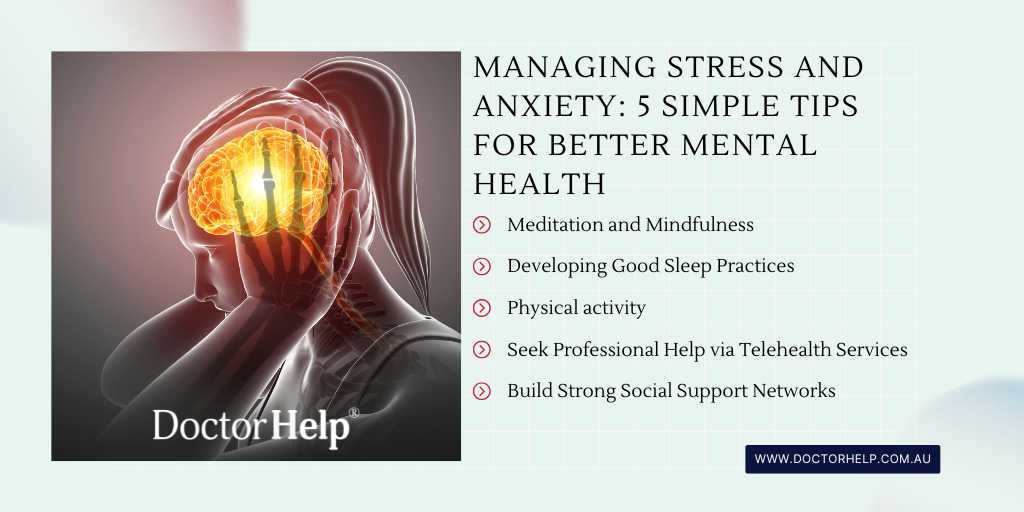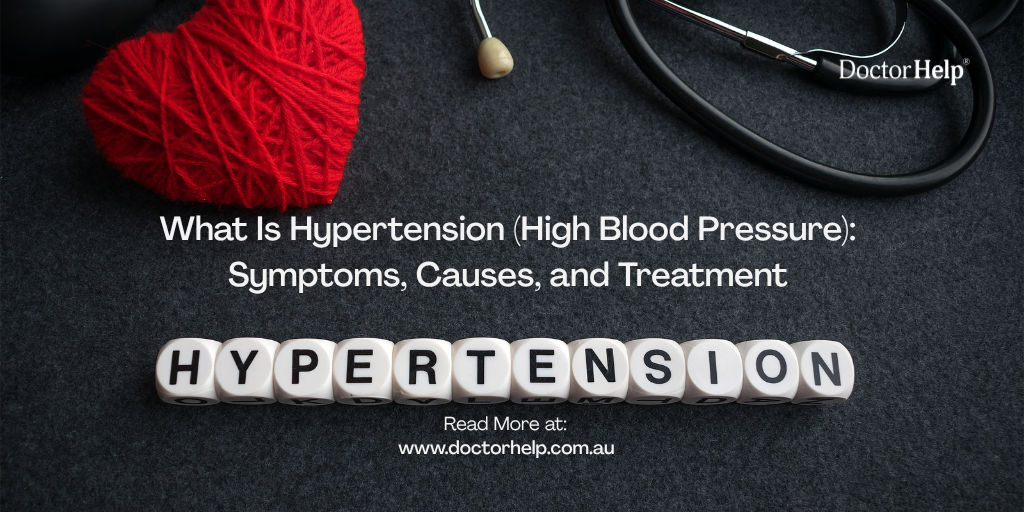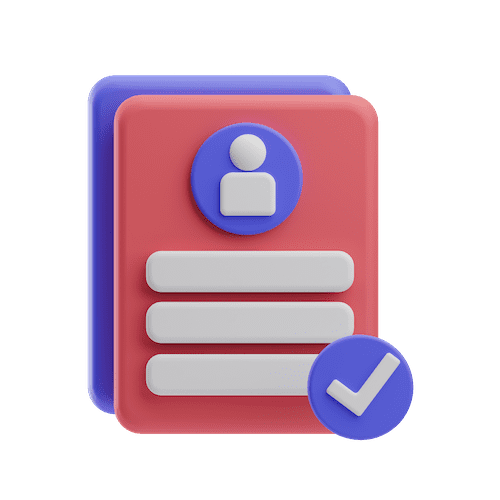Table of Contents
Stress and anxiety: welcome in the world of today’s rat race. People have to do so much at work, at home, or when confronted with the unknown, it is easy for stress and anxiety to get out of hand. According to Beyond Blue, 1 in 4 Aussies have anxiety conditions.
But here’s the good news: there are ways that these challenges can be handled. Here are five ways to improve your mental health if you are dealing with stress and anxiety or just want to keep your mental health intact, focusing on stress and anxiety management.
1. Meditation and Mindfulness
Meditation and mindfulness are both very good for anxiety. The American Psychological Association endorses mindfulness for anxiety management techniques that develop a person to think and see what is happening around at present and not to let the mind wander anywhere else. These have a positive impact on controlling stress and anxiety. For example, meditation may include walking in a pre-programmed path, sitting quietly while doing breathing exercises, or body scans to help ignore painful thoughts and cultivate a peaceful mind.
Mindfulness is simple to incorporate into your daily schedule with limited time. Spending 10 to 15 minutes every day on meditation can manage stress and anxiety and increase the emotional strength of people.
2. Developing Good Sleep Practices
Sleep and mental health have a close, bidirectional relationship. Imbalances in production that are caused by sleep deprivation would impede the regulation of emotions and stress by the brain; such a situation would escalate anxiety and irritability in the individual. Anxiety makes it impossible for a person to fall or stay asleep; this complicates the matter. The intake of a healthy sleep routine is one of the most successful ways to improve mental health for the people who want to set a good sleep pattern to control their stress . Improve sleep to manage stress and protect your emotional well-being.
To manage stress and anxiety by increasing sleep, try to get 7–9 hours of good sleep every night. Set the same routine for bedtime and for waking up every day, and keep the room calm. Try to make your bedroom darker and quieter, keep it at a temperature that is comfortable for you, and stop doing things like caffeine, heavy meals, and television before bed. If you get good sleep, you will have a better shot at handling stress when it comes up. Good sleep hygiene needs to become part of your daily routine for successful stress and anxiety management.
3. Physical activity
Apart from sleep, physical activity is also very effective as a means of stress relief in the management of mental health. During exercise, the brain triggers the production of endorphins that lift the mood of a person and reduce the level of stress and anxiety. It also promotes quality sleep, increases self-confidence, and works as a beneficial way to relieve uncomfortable thoughts. Exercise for stress relief is a proven technique that boosts overall emotional wellness.
Obviously, not every activity has to be done with a lot of difficulty. You can greatly improve your mental health by brisk walking, yoga, swimming, cycling, or stretching. Try to get about 30 minutes of regular exercise on most days of the week. A study shows that consistent physical movement has a major impact on your ability to regulate stress and anxiety. Preferably opt for the natural environments for exercise which will give a calming effect from this angle and perspective.
4. Seek Professional Help via Telehealth Services
If stress and anxiety become chronic, and start affecting your daily schedule in a negative way, then you should seek help. Telehealth services for anxiety management have made it easier than ever to get mental health assistance. Patients belonging to areas with healthcare resources facing limitations can benefit from it through having video therapy, telepsychiatry, and online counseling.
These platforms typically provide treatments based on scientific evidence, including Cognitive-Behavioral Therapy (CBT), which has demonstrated to be effective in the treatment of anxiety. Online talking to a licensed therapist, even if your stress level is high, helps you recognize your triggers, practice coping methods, and gain strength. Telehealth services for anxiety management are private, convenient, and effective for helping you anywhere.
5. Build Strong Social Support Networks
A big social net is key to dealing with stress and anxiety. Isolation tends to up the emotional struggle, while support gives comfort and different views. Spend some time with your friends in different ways, either online or off.
When physical communication cannot happen, online support for stress management can be of value in lifelong learning. Being a part of online groups that offer support gives people the chance to share their stories, to get help, and to know that they are not alone.
These platforms and communities help individuals with mental health issues to meet people who have the same experiences. Sharing these experiences with others often helps you understand that you are important and can have better emotional control.
Conclusion
Management of stress and anxiety is not an overnight endeavor. It takes a lot of patience. Good sleep hygiene, routine physical exercise, appropriate professional help, and healthy social connections all support minding wellness and leading a balanced life.
If anxiety is becoming too frequent or intense, one might consider looking into telehealth services for anxiety management. This could be done so as to have access to timely personalized help. With some good strategies and supplementary services, mental healthcare can be delivered.
Dealing with stress or anxiety? Consult with a certified doctor at Doctor Help now.
References:
- Mindfulness meditation. (2019, October 30). American Psychological Association.
https://www.apa.org/topics/mindfulness/meditation - 10 strategies for managing anxiety – Beyond Blue. (n.d.). Beyond Blue.
https://www.beyondblue.org.au/mental-health/anxiety/treatments-for-anxiety/anxiety-management-strategies - Department of Health & Human Services. (n.d.). Exercise and mental health. Better Health Channel.
https://www.betterhealth.vic.gov.au/health/healthyliving/exercise-and-mental-health - Managing and treating anxiety. (n.d.). Better Health.
https://www.betterhealth.vic.gov.au/health/conditionsandtreatments/anxiety-treatment-options - Nelson, D., Inghels, M., Kenny, A., Skinner, S., McCranor, T., Wyatt, S., Phull, J., Nanyonjo, A., Yusuff, O., & Gussy, M. (2023). Mental health professionals and telehealth in a rural setting: a cross sectional survey. BMC Health Services Research, 23(1).
https://doi.org/10.1186/s12913-023-09083-6 - Mahindru, A., Patil, P., & Agrawal, V. (2023). Role of Physical Activity on Mental Health and Well-Being: A review. Cureus.
https://doi.org/10.7759/cureus.33475 - Suni, E., & Suni, E. (2024, March 26). Mental health and sleep. Sleep Foundation.
https://www.sleepfoundation.org/mental-health














